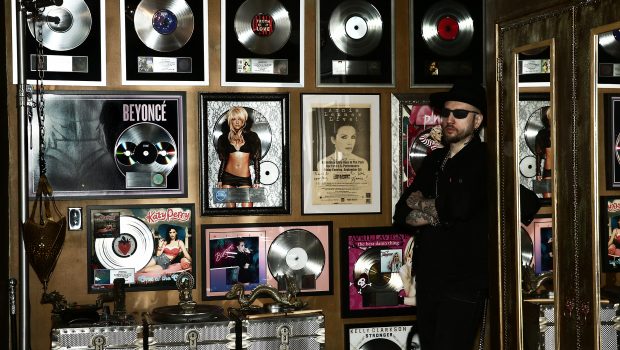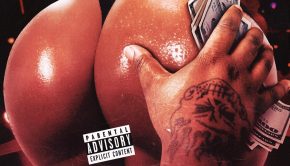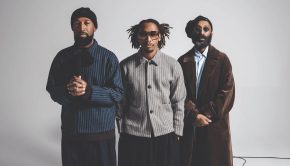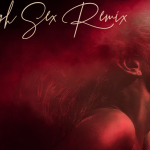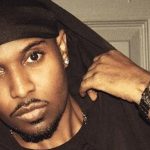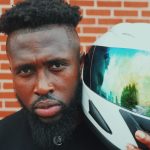Steven Wolf On Drumming On Some Of The Most Popular Albums Of The Last 15 Years & More
No matter your age, background or musical preferences, it is guaranteed that you have heard Steven Wolf — more commonly-known by the single moniker of “Wolf” — play and/or program drums. His discography includes top-selling albums by Beyonce, Katy Perry, Alicia Keys, Miley Cyrus, P!nk, Kelly Clarkson, Britney Spears, Celine Dion, Aretha Franklin, The Bee Gees and Cher. Also a songwriter and producer, the Berklee College Of Music attendee also has plenty of non-pop credits, having started in the jazz world and been mentored by Late Night with David Letterman guitarist Hiram Bullock.
I first discovered Wolf as a result of his appearance of the drum-centric podcast I’d Hit That. After hearing Wolf talk at length about his journey from local wedding bands to international arena-playing bands, I pursued an interview with him. While visiting Wolf at his New York home in the East Village, I recorded what will be part of a future Paltrocast episode for PureGrainAudio. As a preview to my forthcoming podcast’s launch, below are highlights from my in-person chat with Wolf in June.
More on Wolf can be found at www.wolfedelic.com and on Instagram via following @Wolf_Drums.
Right now you’re known as a drummer and a programmer. When was the line drawn in the sand that you were going to be more of a studio musician than a touring musician?
Wolf: I was heading that way anyway from my first sessions, I knew I liked doing it. I didn’t draw the line in the sand until 1999. In the early 90’s, I was doing gigs with my musical heroes… I was making money, but not great money, and I was getting endorsements, but not A-List endorsements. My friends that were making 10 times a week what I was making and getting much better endorsement deals than me, they were playing with big pop stars. I kind of planted seeds and that eventually manifested.
From 1995 on, I was playing big arenas, playing on TV, making way more money, better endorsements, having my own drum techs, all the s**t I had wanted. I eventually realized that I felt like I was playing in a wedding band again, except a much bigger scale and way better treatment. But ultimately I felt myself watching the clock, the same way I would be counting down the songs until the end of the wedding. I was playing at Wembley and looking at the setlist like, “Okay, 2 more songs to go, can’t wait to get the f** offstage.” In the meantime, I would be missing calls for sessions.
A couple of other things happened, like an artist I really loved touring with effectively retired from touring. Two other artists I loved touring with died, Hiram [Bullock] and Grover Washington Jr. I was like, “You know what? I don’t think I’m going to get to do any better than that, musically or financially.” I did a couple of these smaller-market things with bands, I worked in Japan for a while making huge money with J-Pop artists, same thing with artists that you wouldn’t know in the States but were massive in the U.K. ’99, 2000, you know the saying “Burn the ships?” I just started telling people I wasn’t available for touring anymore, knowing that I might be f**king myself. But I figured the only way I’m going to be making this work as a session drummer is if I don’t give myself an escape plan.
Fortunately, the programming thing, I saw the writing on the wall. I knew that programming was going to be necessary for me to pick up the slack. I saw there was less and less work for live drums on major sessions.
With drum programming, where does your base of knowledge come from? Does it come from messing around, or did you have knowledge from piano and music theory?
Wolf: With drum programming, the music theory doesn’t come into practice so much. Even that, my music theory… I took ear training at Berklee and I took a semester in high school of music theory, but at that point I already kind of knew the basics because my brother had a guitar. I was playing in bands and any time anyone would leave a guitar or a synth or a bass after rehearsal, I would just figure s**t out. Before I knew the names of chords and intervals I could figure them out…
As far as learning electronics, that was just figuring it out. I kind of grew up with the technology, I had my first drum machine as a teenager. I was one of the first touring drummers to incorporate a sampler, pads, and a bunch of that technology. Now it’s ubiquitous, you’ll see even the jazz drummers have a pad controller, a laptop… I eventually switched to doing everything on the box, which means I program everything on software. I’ve had to teach myself because there was no such thing as a laptop when I was a kid. There was no such thing as the Internet, sampling wasn’t a thing… I just adapt and grow, and every few years, it’s just something I’ve accepted…I have to adapt my skill set every few years if I want to stay relevant. So I don’t have any formal training with the programming side of things.
Being that forward-thinking in terms of technology, does that lead to other aspects of your life where you are always trying to stay on top of things?
Wolf: Yes, although I was very stubborn about that other stuff… I waited until not changing became harder than doing the actual work involved with changing. I had to hit some kind of emotional bottom to wake up. Like a lot of musicians, I was very stunted in a lot of personal areas. So now, I’m constantly developing myself…I’m all about growth.
Having played on some of the most famous songs of the last 10 or 15 years, when you hear one of those songs while you’re at a CVS, does that make you feel a certain way?
Wolf: Yes and no. I’ve never made it a secret that I never listen… I listen to new music to stay current, to keep my sonic vocabulary up, to stay relevant as a “hired gun.” But I never listen to modern pop for pleasure, or almost never. So I never feel anything like, “I love this song,” but I do feel a sense of accomplishment…it feels like I’m giving my inner-child a high five, like “You made it.”
I’ve always been envious of my friends who grew up in the music business. They knew it’s something you could achieve. I came up with the opposite, the immigrant mentality where you’re the first generation to have certain opportunities, and you’re expected to get a “real job”. “Music’s great for a hobby, but you have to be realistic.” It wasn’t something growing up, that I knew one could do. Now I know that anybody could do it. Obviously not anybody, but it’s attainable to anybody that has the talent and is willing to put the work in. As a kid, it didn’t seem realistic to me, but I was still passionate about it… I feel nostalgic, I guess?
Finally, Wolf, any last words for the kids?
Wolf: It’s such a different world now. The information is out there, whatever you want to learn… The generation I came up with and the generation before, we had to hunt for our food, so to speak. So if you wanted to figure out some Tony Williams s**t, we had to buy the vinyl. I had to put my finger on the turntable and slow down and try to figure out what he was playing. I would still get things wrong, but that’s how you develop your own style.
Now if you want to learn a lick or groove by whoever your favorite drummer is, you go on YouTube and there’s 200 videos of people breaking down the technique. Chances are, you can even find videos of your favorite drummer breaking it down… And if not, then you can probably get a Skype lesson with them, and he or she will probably tell you what they did. It’s great. This generation of drummers has more chops than any generation before, but it’s very homogenous. So my advice would be, find a way to keep your s**t unique. Find a way to do it the hard way. Figure out a way to make it your own.

